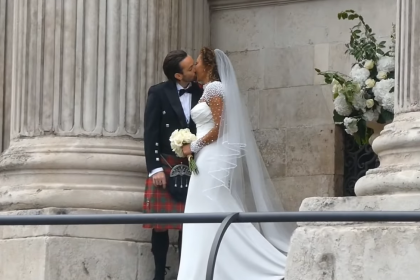Having a conversation with your boyfriend about his wandering eyes can be challenging and uncomfortable. It’s a sensitive issue that touches on trust, respect, and communication within your relationship. However, addressing this behavior is crucial for maintaining a healthy and honest partnership. In this article, we will explore effective ways to communicate your feelings and concerns about his roaming eyes, ensuring that the conversation is both respectful and constructive.
Understanding the Impact of Roaming Eyes
Before delving into how to approach the topic, it’s essential to understand why roaming eyes can be problematic. When your boyfriend frequently looks at other women, it can make you feel insecure, undervalued, and disrespected. This behavior might suggest a lack of attention or appreciation for you, potentially leading to trust issues and emotional distance in the relationship.
Recognizing the Signs
To address the issue effectively, you need to be sure that his behavior is indeed a problem. Some signs to look out for include:
- Frequent Glancing: He often looks at other women, even when you’re together.
- Lingering Stares: His gazes last longer than a casual glance.
- Flirtatious Behavior: His body language or interactions with other women suggest more than just friendliness.
Preparing for the Conversation
Approaching the topic of his wandering eyes requires careful planning. Here are some steps to help you prepare:
- Choose the Right Time and Place: Find a quiet, private setting where you can talk without interruptions.
- Stay Calm and Composed: Approach the conversation with a calm demeanor, avoiding accusatory language.
- Be Specific: Provide clear examples of his behavior that have made you uncomfortable.
Starting the Conversation
Initiating the conversation can be daunting, but starting with “I” statements can help make it less confrontational. For example:
- “I’ve noticed that you often look at other women when we’re out, and it makes me feel insecure.”
- “When you stare at other women, I feel undervalued and disrespected.”
Emphasizing Your Feelings
Expressing how his behavior affects you personally is crucial. Focus on your emotions rather than attacking his actions:
- “It hurts me when I see you looking at other women because it makes me feel like I’m not enough for you.”
- “I feel disrespected when your attention seems to be on others instead of me.”
Setting Boundaries
After expressing your feelings, it’s essential to set clear boundaries for what you expect in the relationship:
- “I need to feel valued and respected, and I would appreciate it if you could be more mindful of where your attention goes.”
- “I understand that it’s natural to notice other people, but I would like us to focus on each other when we’re together.”
Encouraging Open Communication
Promote an open dialogue where both of you can express your thoughts and feelings without fear of judgment:
- “I want us to be able to talk about anything that’s bothering us, so please let me know if there’s something you feel we need to discuss.”
- “How do you feel about what I’ve shared? I want to understand your perspective as well.”
Finding Solutions Together
Work together to find ways to address the issue and strengthen your relationship:
- “What can we do to ensure that we both feel secure and valued in our relationship?”
- “Let’s come up with some strategies to make sure we’re both comfortable and happy.”
Building Trust and Respect
Reinforcing trust and respect is crucial for overcoming the issue of roaming eyes. Some steps to consider include:
- Reaffirming Commitment: Regularly express your commitment to each other and the relationship.
- Spending Quality Time: Engage in activities that strengthen your bond and deepen your connection.
- Appreciating Each Other: Make a conscious effort to show appreciation and admiration for each other.
Seeking Professional Help
If the issue persists or becomes a significant source of conflict, consider seeking the help of a professional therapist or counselor. They can provide valuable insights and strategies for improving communication and resolving underlying issues.
Conclusion
Addressing the issue of your boyfriend’s roaming eyes is essential for maintaining a healthy and respectful relationship. By approaching the conversation with empathy, understanding, and clear communication, you can express your feelings and concerns effectively. Setting boundaries and working together to find solutions will help build trust and respect, ensuring a stronger and more secure partnership. Remember, open and honest communication is the foundation of any successful relationship, and addressing sensitive issues like this is a step towards a healthier and happier future together.
This story was created using AI technology.
















